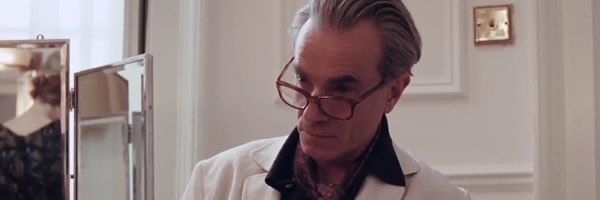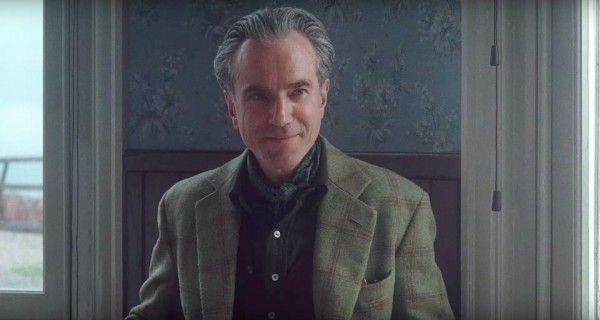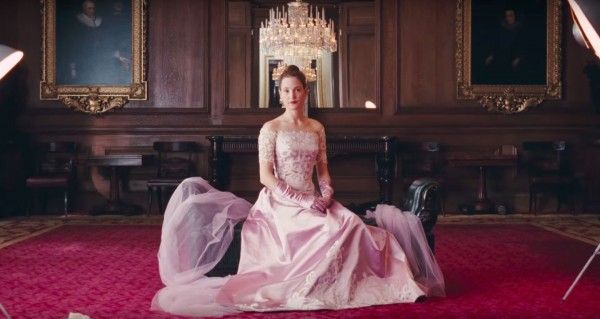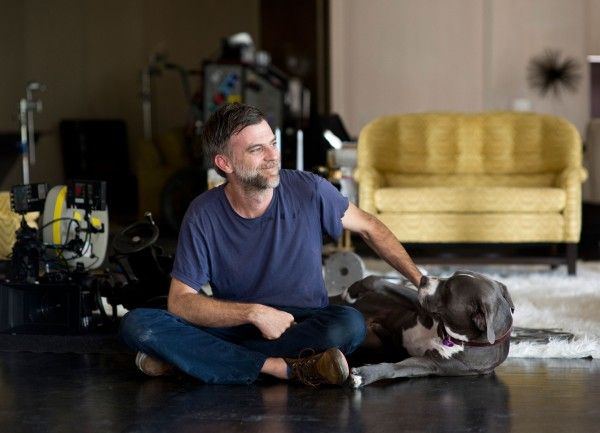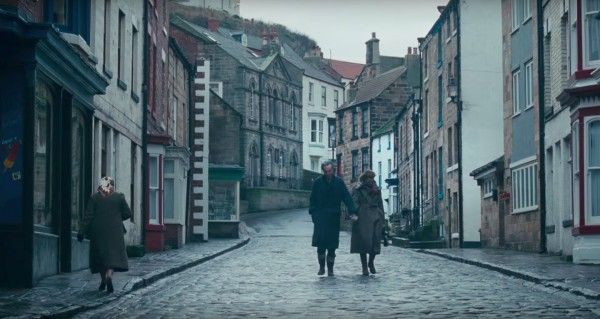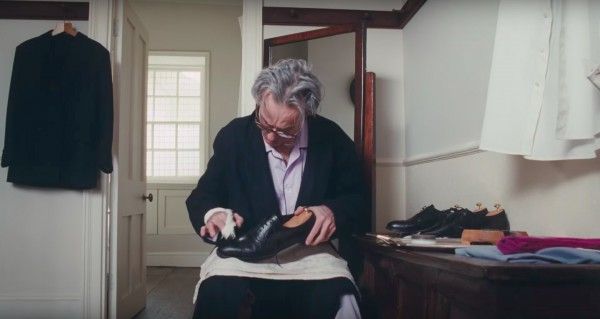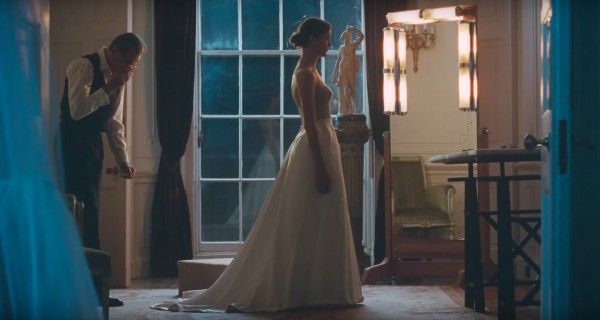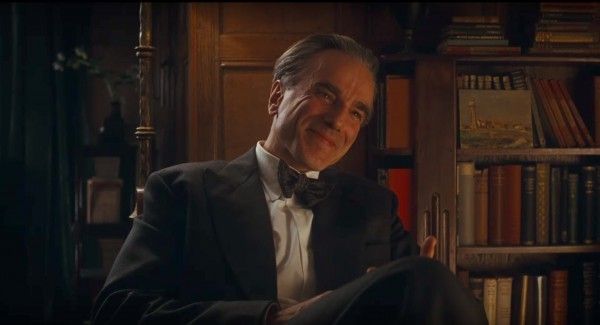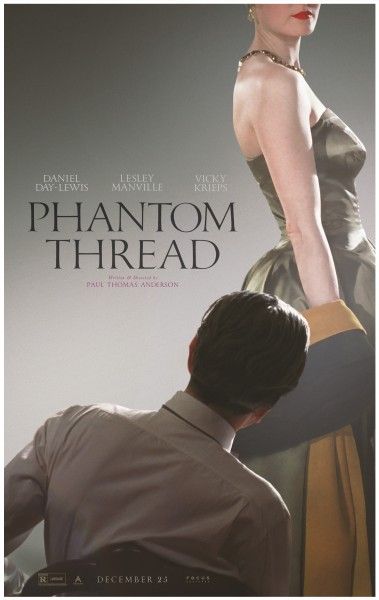Paul Thomas Anderson’s highly anticipated new film Phantom Thread was finally revealed last week with a debut trailer, and now the filmmaker is ready to shed a little light on what audiences can expect from the new drama. Set in the couture world of 1950s London, the film stars Daniel Day-Lewis as a renowned dressmaker whose life is upended by the arrival of a young, strong-willed woman named Alma (Vicky Krieps), who soon becomes his lover.
Secrecy surrounded the film throughout production, and while the trailer teases a character-driven period drama, in a new interview with EW Anderson seems to suggest he took strong inspiration from the Alfred Hitchcock classic Rebecca:
“It’s not your standard love story. It’s more peculiar for sure. A lot of directors have tried and failed to make Rebecca. I’m probably next in line, but it’s a different story. I’m a large aficionado of those large Gothic romance movies as the old masters might do them. What I like about those kinds of love stories is that they’re very suspenseful. A good dollop of suspense with a love story is a nice combination.”
Anderson says that unlike some other films of his, the story for Phantom Thread is a fairly new one, and he came up with the story before he came up with the characters. But instead of writing the script first and then sending it to Day-Lewis, Anderson reveals that they collaborated on the screenplay together:
“It came about at my suggestion because I thought we did it well together, and we loved what we did before. I suppose there’s always the risk of trying to do it again, but it seemed crazy not to take the opportunity. I was actively pursuing that, saying, ‘We have to do this. We have to get back together and make a film.’ I couldn’t quite tell you which came first. If you’re hoping for something, you can start to will it into existence. He was receptive to it, so that was a good start. Then the process of writing it was really the two of us together, quite honestly. I’d give him things as I was writing. Rather than go away and write a script and try to impress him, I was collaborating with him each step of the way as I was going, which was very helpful in terms of forming the story and the character. But also, it was incredibly practical for time [purposes] because it gave him time to prepare whatever he was going to have to learn how to do to play a dressmaker. It would not have been practical to write a script alone in my room and then hand it to him and say, ‘Oh, now we have to get started.’ That seems crazy.”
Anderson says that Day-Lewis gave no indication that he planned Phantom Thread as his last film, as the Oscar-winning actor has since stated that he’s retiring from the profession. But it sounds like if this is Day-Lewis’ final role, it’ll be a meaty one.
One of the more intriguing aspects of Phantom Thread was the revelation that Anderson wasn’t working with his longtime cinematographers. In fact, no cinematographer was ever announced, so everyone assumed Anderson was working as his own director of photography. But the filmmaker tells EW that’s not the case—the film has no single director of photography:
“I should really clarify that. That would be disingenuous and just plain wrong to say that I was the director of photography on the film. The situation was that I work with a group of guys on the last few films and smaller side projects. Basically, in England, we were able to sort of work without an official director of photography. The people I would normally work with were unavailable, and it just became a situation where we collaborated — really in the best sense of the word — as a team. I know how to point the camera in a good direction, and I know a few things. But I’m not a director of photography.”
Robert Elswit, who shot most of Anderson’s films including There Will Be Blood and Inherent Vice, was busy shooting Roman J. Israel Esq. at the time, and Mihai Malaimare Jr., who shot The Master, appears to have been otherwise engaged as well. Indeed, Anderson says there’s no director of photography credit at all, but he does single out a few members on the crew who helped handle those duties in a collaborative fashion:
“If you can give credit, Michael Bauman is the gaffer that I’ve worked with for many, many years on a lot of projects. I could veto Mike, I guess, but he held a lot of the keys. There was a camera operator, Colin Anderson, I’ve worked with, and Erik Brown, who was the first assistant cameraman and Jeff Kunkel, who was a grip. It was a real package like that. It was a really easy way of working. You have to be very, very careful because there are way too many good cinematographers that I would not put myself in that class for a second.”
This is a fascinating revelation, and one has to wonder if Anderson’s just being humble. Elswit’s movies with Anderson don’t look like any of Elswit’s other movies, similar to Robert D. Yeoman’s work with Wes Anderson, so one assumes Paul Thomas Anderson has a very strong handle on the visual style of his own films.
Regardless, Phantom Thread already looked great and the notion that it may be a Rebecca riff, or at least influenced by that classic Gothic romance, only makes my appetite for PTA’s latest that much stronger. The film opens in theaters on December 25th.

